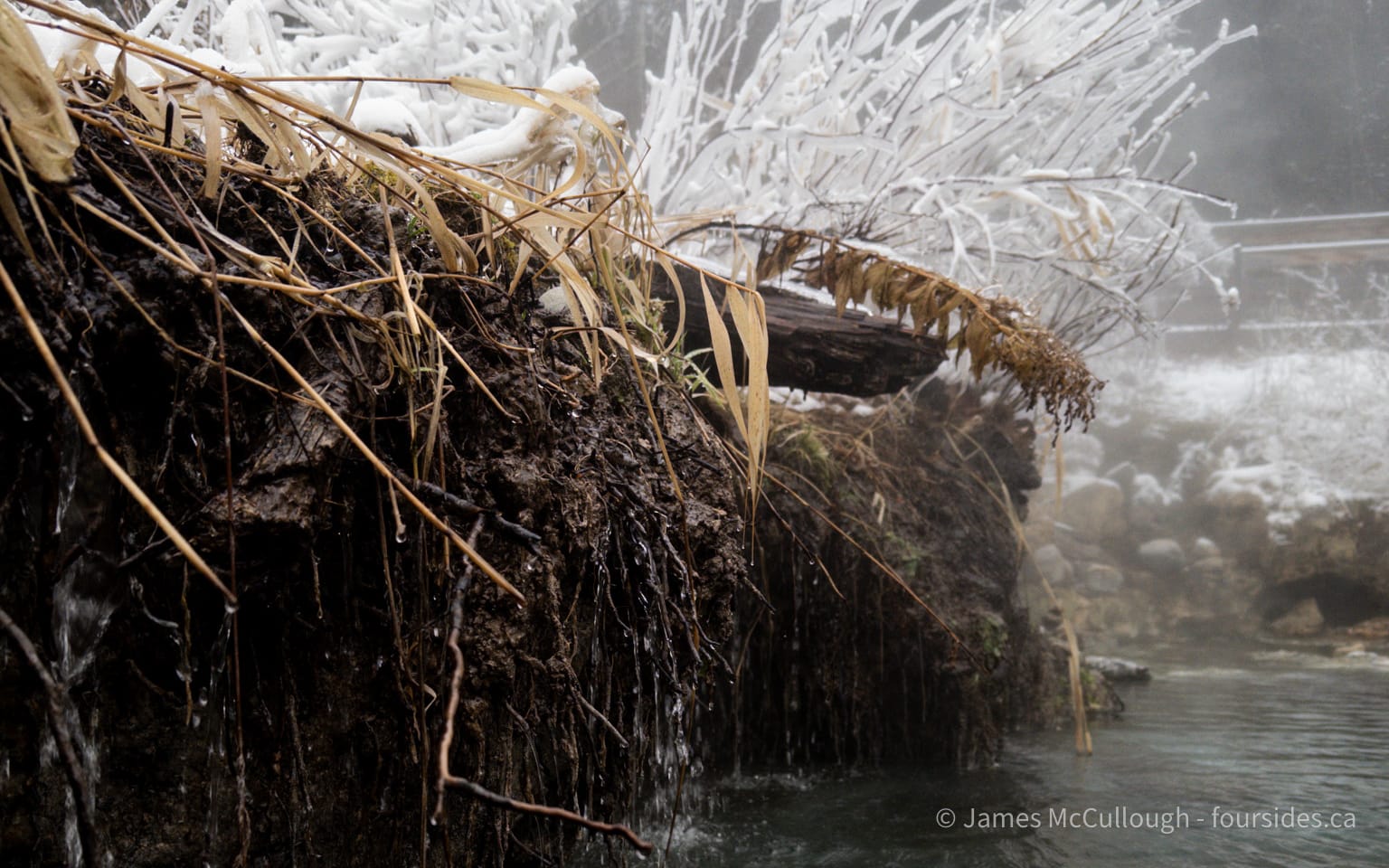Blue Bottle Coffee Review
I have been subscribing to Tonx Coffee for several years now. Earlier in 2014, it was announced that Tonx would be joining Blue Bottle Coffee. The fortunate thing is the coffee subscription service wasn’t going to be changing that much, only the branding.
The changes that are happening are going to make things even better. Below is more information about the subscription service, and a list of the coffees I am receiving to give you an idea of the flavours to be expected when signing up. The original list of coffees delivered by Tonx will remain on my site, as Blue Bottle Coffee is still continuing on their tradition of delivering coffees from around the world.
Blue Bottle Coffee
Blue Bottle Coffee is an independent operation based out of California. They have both coffee shops there, but also coffee subscription services that sends the best coffee or espresso from their roasters to your door for a low price. With the addition of the Tonx team, Blue Bottle Coffee truly the best damn coffee out there.
I live in southern British Columbia in Canada, which besides a lot of wineries and orchards, has several coffee roasters here. I have tried almost all of the various blends, on top of the national chains (Starbucks, Blenz, Second Cup, etc.) and have been unable to find something that really appealed to me day in, day out. I may find one blend I enjoy, but then end up sticking to it all the time. There was no variety.
Until I subscribed to Blue Bottle Coffee.
Blue Bottle Coffee gives you that variety if you desire it, or a certain bean type on a regular basis with consistent flavours.
Here are some links to learn more about the company:
- The Big Blue Bottle Coffee Machine – The Awl
- Blue Bottle Coffee’s New Orlenas Iced Coffee – LAist
- The Multimillion Dollar Quest to Brew the Perfect Cup of Coffee – Fast Company
Subscription Options
With Tonx, you only had two choices: a small bag of coffee, or a larger one. With Blue Bottle Coffee, you have endless possibilities.
- Origins Subscription: A delicious new single origin offering from Latin America, East Africa, or the Pacific Islands.
- Blend Subscription: A changing selection of our blends, each one with its own origin story and profile.
- Espresso Subscription: A melange of our espresso offerings, including blends and single origins that we serve in our cafes.
- a choice of 7 other coffee roasts on a regular basis.
With each subscription, you will eventually get to choose the frequency (every week, every other week, once a month, etc.) And like Tonx, you will get a few size options as well.
- 6 oz is $13 for Origins Subscription ($12 for others)
- 12 oz is $21 for Origins Subscription ($19 for others)
Once you have the option to have shipments arrive once a month, the 12 oz bag is going to clealry be the best option.
The Coffees
The other options available:
- Hayes Valley Espresso: Cocoa, orange zest, smoky finish.
- Decaf Noir: Nutty, chocolaty, dense.
- Bella Donovan: Heavy, comforting, deeply fruited.
- Three Africans: Fruity, radiant, creamy.
- Giant Steps: Viscous, fudgy, substantial.
- 17ft Ceiling: Effulgent, caramelly, enveloping, nutty.
- Roman Espresso: Jammy, malted, medium-bodied
Subscription Coffees Received
Details: Roger Esaú Herrera Ortéz and his family of seven are responsible for some of the most delicious coffee Nicaragua has to offer. Their farm, Buena Vista, is located on the Cerror de la Explosion in San Fernando de Nueva Segovia. This selection is pulped, fermented, and washed on the farm before it is transferred to Beneficio La Estrella, in nearby Ocotal, to be dried and prepared for export.
Deliciousness: Nougat, cocoa, mixed berry, pear
Details: Beneficio Santa Rosa is perched high in the mountains of Santa Rosa de León Cortés, in central Costa Rica. Owned and managed by the father and son team of Efraín and Herberth Naranjo, the farm and mill are modestly sized and impeccably run. After pulping and mechanically demucilaging the fruit from each tiny harvest, the Naranjos lay their parchment coffee out to dry on well-monitored raised beds.
Deliciousness: Nectarine, watermelon, strawberry shortcake, maple.
El Salvador Aida Batlle Tanzania
Details: Thanks to her scrupulous attention to picking and processing, along with her savvy across all levels of the coffee supply chain, Aida Batlle has become the first of a new breed: coffee producer as culinary celebrity. Cherries from Finca Tanzania are hand-selected for their ultra-ripe “blood red and burgundy” coloration, then processed at J. Hill, an unparalleled facility in downtown Santa Ana.
Deliciousness: Caramel, maple, brown sugar, fig
Ethopia Guji Suke Quto
Details: The 68-member Suke Quto producer’s association is located in the Odo Shakiso district, in Ethopia’s Guji zone. Founded in 2004, Suke Quto stretches across a verdant 291 hectares and includes a diverse array of indigenous plant and animal species. After being hand-picked at its apex of ripeness, this coffee is fermented in concrete tanks, washed, and sun-dried on raised beds.
Deliciousness: Strawberry, rose hip, pluot, silk
Costa Rica Tarrazú Divino Niño
Details: With four generations of farming experience behind him, Mauricio Vindas is off to a great start at Divino Niño. Since purchasing the 12-hectare farm in 2009 (he worked as a cook to save up the money), he’s planted more than 5,000 Caturra and Catuai trees. This year, thanks to some meticulous picking and processing. Divino Niño nabbed its first Cup of Excellence award.
Deliciousness: Citron, toffee, cocoa, brisk, clean.
Ethiopia Yirgacheffe Bedhatu Jibicho
Details: In Gedeb, a fertile pocket of southern Ethiopia that’s just east of Abaya Lake. Bedhatu Jibicho is producing some of the country’s most exciting coffee. With help from her son, Tesfaye, who runs day-to-day operations on the farm, she’s getting delicious (and prodigious) yields from her 45 hectares. After careful picking, this coffee is laid out on raised beds to dry, then taken north to be milled at a cooperatively-run facility in Addis Ababa.
Deliciousness: Strawberry, dark chocolate, malted milk, cream
Guatemala Cobán Santa Isabel
Details: Finca Santa Isabel, located in a lush corner of Guatemala’s San Cristobal Verapaz municipality, has been owned and operated by the Valdes family since 1875. Today, the 187-hectare farm stands out as a paragon of environmental sustainability, with a full 100 hectares dedicated to reforestation and a plenitude of animal species making their homes there.
Deliciousness: oak, honey, dark chocolate, peach
Ethopia Guji Hambela Natural
Details: Aman Adinew, formerly the director of quality control for the Ehiopian Coffee Exchange, has an impressive resume. In addition to establishing the first speciality-focused cupping lab in Africa, he was responsible for training more than 60 certified coffee tasters. Hambela, a farm that hosts its own plants and sources cherry from nearby smallholders, is the brainchild of he and his brother Michael.
Deliciousness: Black cherry, floral, apricot, blackberry
Buena Vista
Details: Roger Esaú Herrera Ortéz and his family of seven are responsible for some of the most delicious coffee Nicaragua has to offer. Their farm, Buena Vista, is located on the Cerror de la Explosion in San Fernando de Nueva Segovia. This selection is pulped, fermented, and washed on the farm before it is transferred to Beneficio La Estrella, in nearby Ocotal, to be dried and prepared for export.
Deliciousness: Nougat, cocoa, mixed berry, pear
Costa Rica Tarrqzú Santa Rosa
Details: Beneficio Santa Rosa is perched high in the mountains of Santa Rosa de León Cortés, in central Costa Rica. Owned and managed by the father and son team of Efraín and Herberth Naranjo, the farm and mill are modestly sized and impeccably run. After pulping and mechanically demucilaging the fruit from each tiny harvest, the Naranjos lay their parchment coffee out to dry on well-monitored raised beds.
Deliciousness: Nectarine, watermelon, strawberry shortcake, maple.
El Salvador Aida Batlle Tanzania
Details: Thanks to her scrupulous attention to picking and processing, along with her savvy across all levels of the coffee supply chain, Aida Batlle has become the first of a new breed: coffee producer as culinary celebrity. Cherries from Finca Tanzania are hand-selected for their ultra-ripe “blood red and burgundy” coloration, then processed at J. Hill, an unparalleled facility in downtown Santa Ana.
Deliciousness: Caramel, maple, brown sugar, fig
Ethopia Guji Suke Quto
Details: The 68-member Suke Quto producer’s association is located in the Odo Shakiso district, in Ethopia’s Guji zone. Founded in 2004, Suke Quto stretches across a verdant 291 hectares and includes a diverse array of indigenous plant and animal species. After being hand-picked at its apex of ripeness, this coffee is fermented in concrete tanks, washed, and sun-dried on raised beds.
Deliciousness: Strawberry, rose hip, pluot, silk
Costa Rica Tarrazú Divino Niño
Details: With four generations of farming experience behind him, Mauricio Vindas is off to a great start at Divino Niño. Since purchasing the 12-hectare farm in 2009 (he worked as a cook to save up the money), he’s planted more than 5,000 Caturra and Catuai trees. This year, thanks to some meticulous picking and processing. Divino Niño nabbed its first Cup of Excellence award.
Deliciousness: Citron, toffee, cocoa, brisk, clean.
Ethiopia Yirgacheffe Bedhatu Jibicho
Details: In Gedeb, a fertile pocket of southern Ethiopia that’s just east of Abaya Lake. Bedhatu Jibicho is producing some of the country’s most exciting coffee. With help from her son, Tesfaye, who runs day-to-day operations on the farm, she’s getting delicious (and prodigious) yields from her 45 hectares. After careful picking, this coffee is laid out on raised beds to dry, then taken north to be milled at a cooperatively-run facility in Addis Ababa.
Deliciousness: Strawberry, dark chocolate, malted milk, cream
Guatemala Cobán Santa Isabel
Details: Finca Santa Isabel, located in a lush corner of Guatemala’s San Cristobal Verapaz municipality, has been owned and operated by the Valdes family since 1875. Today, the 187-hectare farm stands out as a paragon of environmental sustainability, with a full 100 hectares dedicated to reforestation and a plenitude of animal species making their homes there.
Deliciousness: oak, honey, dark chocolate, peach
Ethopia Guji Hambela Natural
Details: Aman Adinew, formerly the director of quality control for the Ethiopian Coffee Exchange, has an impressive resume. In addition to establishing the first speciality-focused cupping lab in Africa, he was responsible for training more than 60 certified coffee tasters. Hambela, a farm that hosts its own plants and sources cherry from nearby smallholders, is the brainchild of he and his brother Michael.
Deliciousness: Black cherry, floral, apricot, blackberry
Colombia Cauca Caloto
Details: This coffee comes to us from a group of four smallholders – Marta Cunda, Diego Trujillo, Arturo Lizcano and Jairo Almeguer – all located in Caloto, a small municipality just a couple hours south of the Colombian city of Cali. After picking, coffee cherries from these producers undergo a process of manual de-pulping, then they’re fermented in tiled or concrete tanks for a period of 16-20 hours.
Deliciousness: Tropical fruit, tangerine, date, toffee.
Guatemala La Bolsa el Cabro
Details: Purchased in 1958 by Dr. Jorge Vides, Finca La Bolsa is among the most progressive coffee operations in Guatemala. Before Vides passed away in 1995, he was a longtime director of the National Hospital in Guatemala City, which now bears his name. Today, his socially-minded imprint lives on through numerous farm programs: nutritious menus for pickers’ children, a school, first aid trainings, and nurse evaluations.
Deliciousness: Plum, juicy, milk, chocolate, clean.
Details: Hunkute is a coop comprised of nearly 2,000 farmers who deliver their cherries to two washing stations in the Wonsho District in Sidama, Ethiopia. A small group of highly-trained coppers evaluate every batch of the country’s prized coffee. With such ideal growing conditions and commitment to quality, Hunkute is a long-standing favourite of our sourcing team.
Deliciousness: Peach, melon, delicate
Details: Run by Erasto Weneza and co-owned by local farmers, the Mwasa washing station is a glimpse into Rwanda’s bright coffee-growing future. Thanks to geographic conditions like mineral-rich volcanic soil and winds from nearby Lake Kivu, this washed coffee is bursting with sweet, deeply fruited flavours.
Deliciousness: Peach, brown sugar, date.
Costa Rica Santa Rosa 1900 La Plaza
Details: Finca La Plaza is one of three coffee farms run by the Naranjo family. It is situated adjacent to the Santa Rosa 1900 microbial, so named for its elevation (in meters above sea level). Production is a longer process at this elevation, where tree growth, cherry ripening and drying take significantly longer than they do at lower farms. These factors allow the Naranjo family to employ careful and deliberate methods, producing a coffee we are thrilled to offer.
Deliciousness: Almond paste, kiwi, honey
Colombia Cerro Azul Gesha
Details: Nestled in the Valle del Cauca region of Colombia, Cerro Azul is known for its Gesha, especially since it is the only varietal they grow on the farm (30,000 trees- all Gesha!). Advanced climate tracking technology provides farmers with detailed information about factors such as rainfall, sun, and wind so that they can optimize their harvest.
Deliciousness: Sparkling, jasmine, plum
Panama Emporium Estate Natural
Details: Panama’s Emporium Estate (formerly Dona Berta), is owned and handily managed by Graciano Cruz. Having placed in the Top 10 coffees in the annual Panama’s Best competition in past years, it’s no wonder that Emporium continues to surprise and delight us. Their signature naturals are meticulously processed on African-style raised beds.
Deliciousness: Blackberry, plum, tropical
Peru Puno San Jorge
Details: Located in the Sandia Valley of Puno, Peru’s southernmost province, San Jorge is one of eight cooperatives that make up the Central Agricultural Cooperative of the Sandia Valley (CECOVASA), which oversees a membership of 4,700 farmers. As most of the farms are on the smaller side, nearly all of the coffee is picked by the farmers themselves, sometimes with the help of neighbours.
Deliciousness: Balanced, milk chocolate, cherry cola
Rwanda Nyanza Iwacu
Details: Iwacu, which means “our place,” is run by a gentleman named Uwizeye, who formerly managed coffee washing stations for Rwanda’s Ministry of Defense. During the growing season, he manages nearly 2,000 farmers. Uwizeye and his team are very committed to sustainability, their machine utilizes pressure instead of water to de-pulp cherries.
Deliciousness: Red currant, lemon, nectarine.
Kenya Embu Gikirima
Details: In early 2014, our green coffee buyer became the first representative from any coffee roaster to set foot in Kenya’s Gikirima washing station. The farmer’s producers apply a meticulous hand to their fermenting, drying, conditioning, and storing operations. Part of the Kibugu Farmers Cooperative, Gikirima produces some of the most delicious coffee Kenya has to offer.
Deliciousness: Blackberry, mandarin orange, vibrant
Details: La Boisa, so named for the bag-shaped topography that the farm sits in, was purchased by Dr. Jorge Vides M.D., in 1958. With great elevation and a small river running through the property, the land is ideal for growing and processing coffee. Dr. Vides highly valued the health of his employees, and implemented a number of programs to ensure it, before he passed away in 1995. The farm is now managed by his daughter, Maria Elena Vides.
Deliciousness: Plum, grapefruit, creamy
Brazil Minas Gerais Carmo Select
Details: Nestled in Brazil’s Mantiqueira mountains, both Fazenda Ignacio Pereira and Fazenda do Serrano are overseen by the Sertao Group and the Pereira family. This Yellow Bourbon variety is a pulped-natural coffee, meaning that the skin and some of the sticky mucilate are removed mechanically before beans are laid out to dry.
Deliciousness: Chocolate mousse, almond, red apple
Details: Fourth-generation farmer Mauricio Vindas Vargas named his farm Divino Nino in honour of his son, who recovered from a serious childhood illness. They say gratitude reaps rewards, but we know hard work does, too. Marco bought these 12 hectares in Costa Rica’s Tarrazu region with money he earned as a cook. He planted 5,000 Cattura and Catui trees and dries the beans in the sun. Whatever the reason, Divino Nino is getting its due. This year, it nabbed its first Cup of Excellence award.
Deliciousness: Toffee, vanilla, currant
Malawi Misuku Hills Mzuzu
Details: The Mzuzu Coffee Farmer’s Cooperative works with 3000 producers from six villages in northern Malawi. The co-op places an impressive and inspiring emphasis on rural and social development, with a focus on improving food and housing security, education, and opportunities for women. When the co-op’s not improving farmers’ lives, it’s helping them produce gorgeous coffees like this one.
Deliciousness: Cola, tamarind, syrupy
$5 off your Blue Bottle Coffee Subscription
To be updated as subscriptions are received




Member discussion